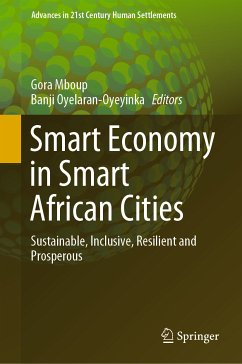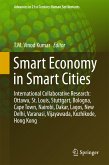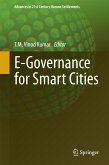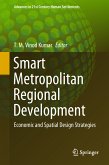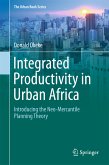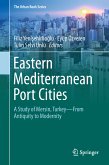This book highlights the use of information and communication technology (ICT) infrastructures in order to develop smart cities and produce smart economies in Africa. It discusses a robust set of concepts, including smart planning, smart infrastructure development, smart economic development, smart environmental sustainability, smart social development, resilience, and smart peace and security in several African cities. By drawing on the accumulated knowledge on various conditions that make cities smart, green, livable and healthy, it helps in the planning, design and management of African urbanization. In turn, it fosters the development of e-commerce, e-education, e-governance, etc. The rapid development of ICT infrastructures facilitates the creation of smart economies in digitally served cities and towns through smart urban planning, smart infrastructures, smart land tenure and smart urban policies. In the long term, this can reduce emissions of CO
2, promote the creation of low carbon cities, reduce land degradation and promote biodiversity.
Dieser Download kann aus rechtlichen Gründen nur mit Rechnungsadresse in A, B, BG, CY, CZ, D, DK, EW, E, FIN, F, GR, HR, H, IRL, I, LT, L, LR, M, NL, PL, P, R, S, SLO, SK ausgeliefert werden.

